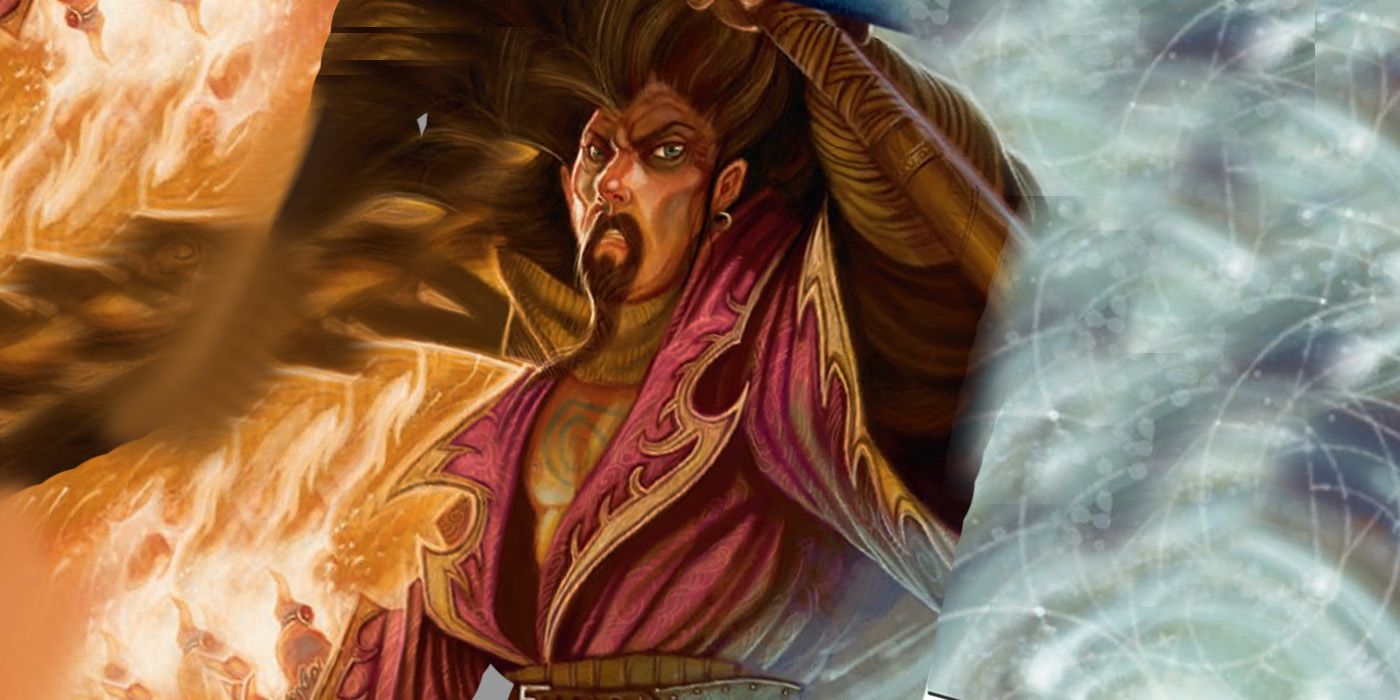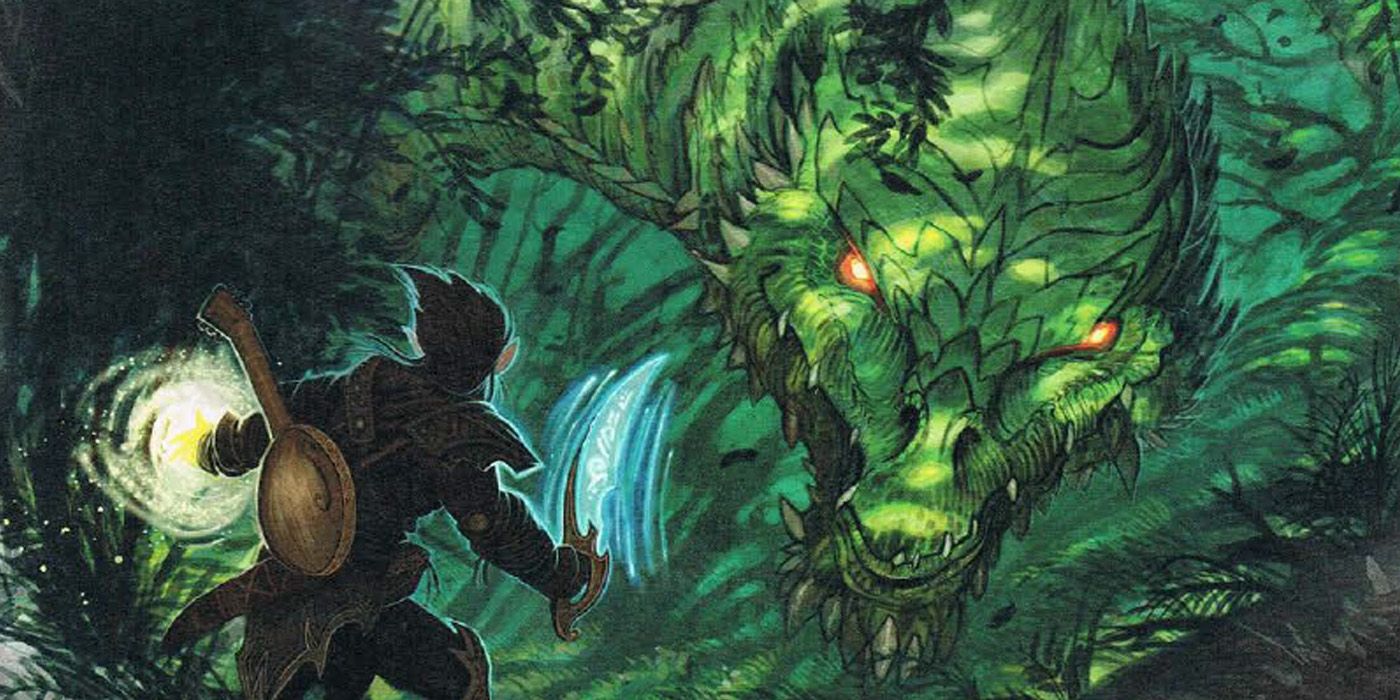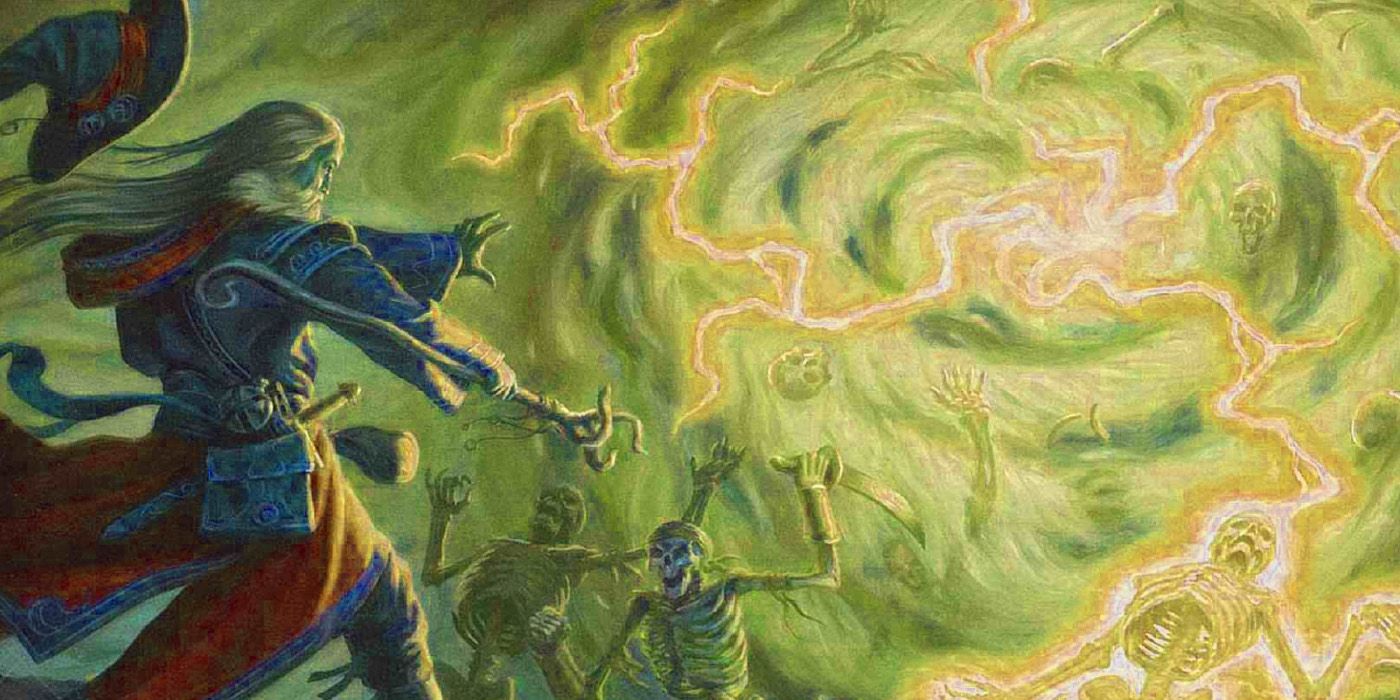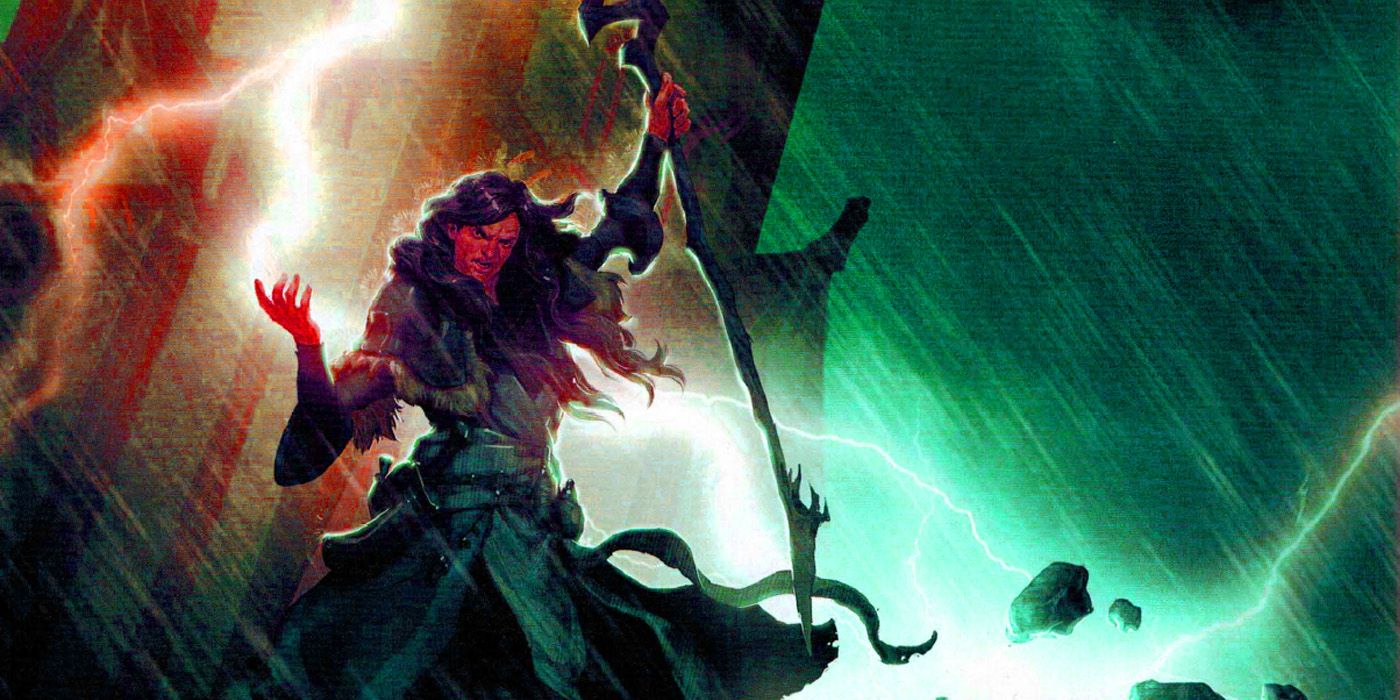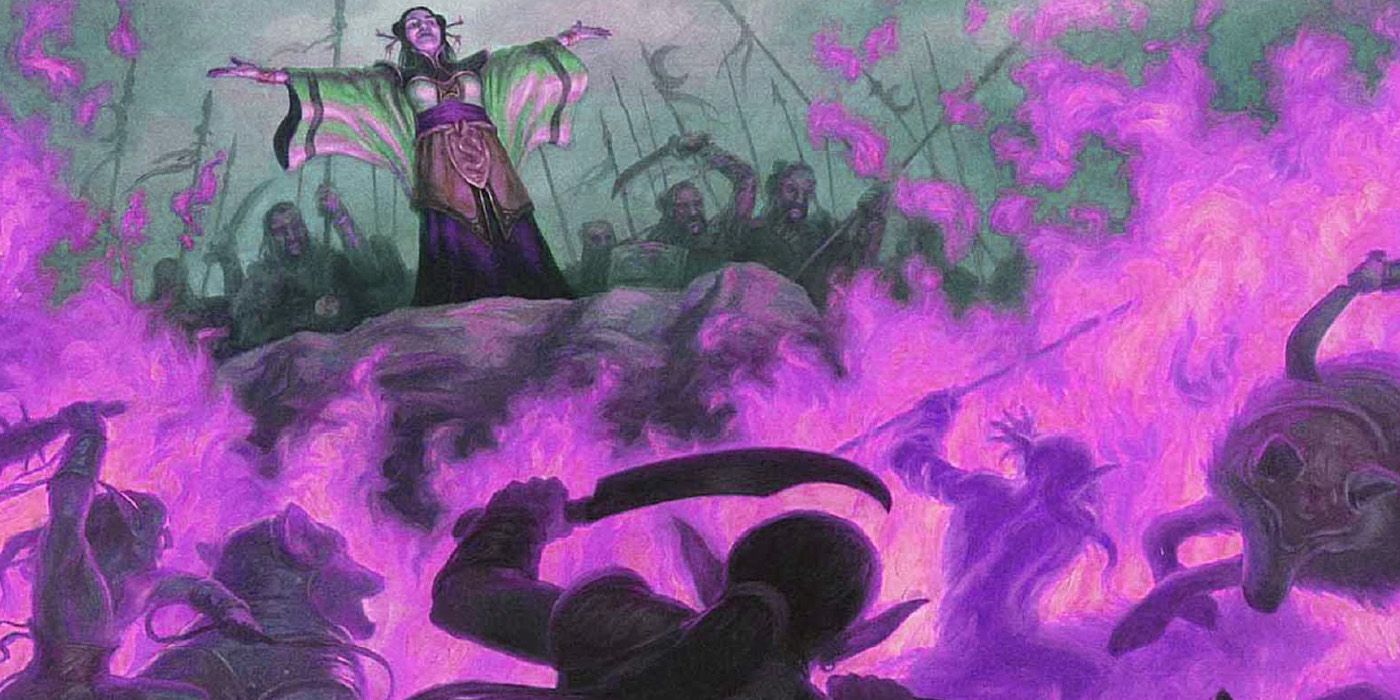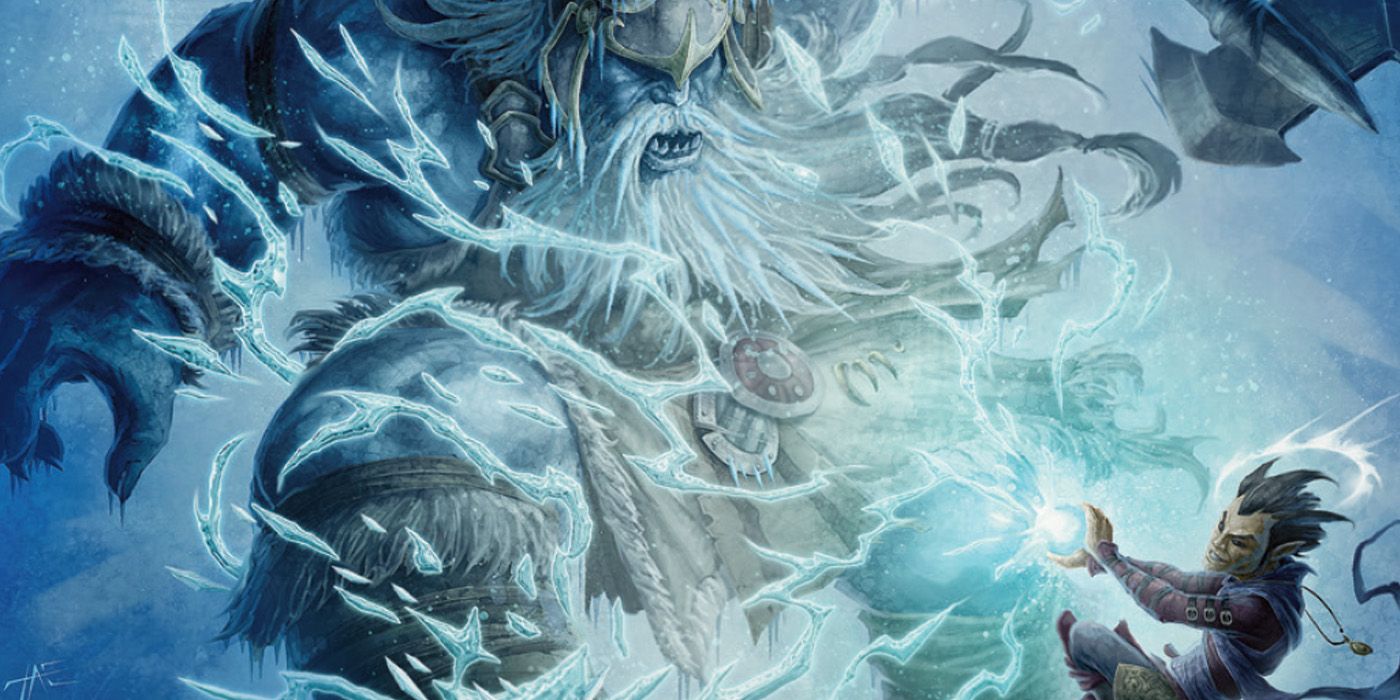The Sorcerer in Dungeons & Dragons serves as the perfect opposite to the Wizard - a "rivalry" that became a running gag inside most D&D tables. After all, contrary to the studious Wizard, the Sorcerer gains their incredible magical potency courtesy of their Sorcerous Bloodline. Moreover, this natural "affinity" to arcane power grants Sorcerers the ability to mend (Metamagic) the nature of magic itself, something a lot of Wizards find annoying.
In turn, Sorcerers serve as one of the best magical DPS options in D&D canon. Unlike the Wizard with their versatile spellbook, Sorcerers can instead alter the nature of their spells to suit their needs. However, with this much flexibility in mind, just which Sorcerer features remain best for players? Meanwhile, which features should upcoming Sorcerers avoid?
10 Crazy: Metamagic
Sorcerers earned their reputation in Spellcasting not through their Spells alone, but rather in what they could do with them. Whereas Wizards have their spellbook, Sorcerers tap into Metamagic. Essentially, Metamagic further enhances the rather limited pool of useful Spells that Sorcerers have into remarkable effects.
Of all Sorcerer features, it's Metamagic that perhaps hold the title as the most useful. Thanks to Metamagic, Sorcerers can spend Sorcery Points to boost the range of Spells, their potency and damage, their casting time, and even their number of targets. With the right Metamagic and Spell combination, Sorcerers can transform mundane Spells into devastating combat-enders, especially against powerful NPCs..
9 No Thanks: Flexible Casting
Thanks to their Font of Magic, Sorcerers have access to Sorcery Points. They could use these to bend the arcane to their will via Metamagic. Meanwhile, Flexible Casting allows Sorcerers to trade Sorcery Points into Spell Slots. At first glance, this seems to be a neat feature, right?
However, considering that Sorcerers have a pool of Sorcery Points equal to their Level after 2nd-Level, it's too costly to trade in these Points for Slots. Remember, a 2nd-Level Spell Slot immediately costs three Sorcery Points. However, these three Points could also be used for more flexible Metamagic Options and other useful Spells.
8 Crazy: Divine Soul
Sorcerous Bloodlines don't necessarily attune Sorcerers to psionics, wild magic, or even storms. Some Bloodlines like the Divine Soul let Sorcerers tap into both the arcane and the celestial, offering them a unique mix of abilities. With Divine Soul, Sorcerers get access to Cleric Spells via Divine Magic. Moreover, Favored by the Gods and Empowered Healing allows Sorcerers to provide more potent healing Spells to their allies.
Essentially, Divine Soul works great as a Subclass for Sorcerers who want the utility potential of Sorcerers and the healing from Clerics. Granted, this Subclass forces Sorcerers to prioritize whether they want to heal or to fight - but the flexibility this provides can make for interesting scenarios.
7 No Thanks: Storm Sorcery
Some Sorcerers look towards the storms as a means to gather their sorcerous energies. In turn, the Storm Sorcery Sorcerer has strong themes regarding the winds and the rain. This Bloodline gives Sorcerers the Primordial language (Wind Speaker), fly after casting Spells (Temepstous Magic), and even resist lightning and thunder (Heart of the Storm, whereas Wind Soul completely gives immunity against them).
Unfortunately, despite the interesting flavor, much of Storm Sorcery demands the Sorcerer to stay just outside melee - which can be dangerous for Sorcerers who don't have the AC and resistances to handle damage. In turn, despite the perks of Storm Sorcery, this Subclass can easily spell death for Sorcerers.
6 Crazy: Ritual Caster
Unfortunately, a lot of players don't like playing Sorcerers due to their limited Spell List. However, certain Feats such as Ritual Caster can help circumvent this. Unlike other immediate Spell-granting Feats, Ritual Caster focuses on rituals. Essentially, the Ritual Caster Feat gives players a ritual book that allows them to cast rituals.
Interestingly, the Ritual Caster Feat immediately gives the Sorcerer two 1st-Level Rituals from the Bard, Cleric, Druid, Sorcerer, Warlock, or Wizard Spell List. Sorcerers can then use these Rituals with the same Spellcasting Modifier. Moreover, Sorcerers can further add more Rituals to their book. Essentially, this Feat serves as a great way for Sorcerers to learn must-have Spells such as Detect Magic or even Find Familiar and still won't occupy their list of known Spells.
5 No Thanks: Magic Initiate
Sorcerers have the arcane capacity to dabble into other magic to strengthen their abilities. Thanks to Magic Initiate Feat, Sorcerers can effectively get two Cantrips and a 1st-Level Spell from the Bard, Cleric, Sorcerer, Warlock, and Wizard for free. However, Sorcerers do need to use these Spells at their lowest level, and with the Spellcasting Ability of the original Class.
Essentially, it means Sorcerers won't likely get any benefits getting Cleric Spells unless they have high Wisdom. Likewise, their choices for Magic Initiate really fall on utility Spells or Warlock Cantrips like Eldritch Blast - which drastically reduces the usefulness of the Feat.
4 Crazy: Spell Sniper
Despite their limited Spell List, Sorcerers pride themselves on their ability to cast Spells that deal debilitating damage to foes. Unfortunately, they're only limited based on their particular Spell's range. Thanks to the Spell Sniper Feat, Sorcerers not only get a free Cantrip with a ranged attack requirement, but all of the Sorcerer's Spells with ranged attacks get double the range. Moreover, Spell Sniper allows Sorcerers to bypass half cover and three-quarters cover.
Essentially, Sorcerers with a penchant for ranged attack Cantrips would likely have a wonderful time with Spell Sniper. They can safely stay outside enemy reach while they dish out attacks - useful against powerful bosses and mobs. This Feat essentially makes Sorcerers a Spell-based substitute to the versatile Ranger.
3 No Thanks: Elemental Adept
Sorcerous Bloodlines sometimes dictate the kind of "flavor" Sorcerers get for much of their Spells. Unfortunately, some creatures may have the ability to resist a Sorcerer's favored element, which can make battles quite a drag. Interestingly, the Elemental Adept Feat has just the answer for this caveat. Thanks to the Elemental Adept Feat, Sorcerers can bypass resistance when they cast Spells of a type they chose with this Feat. Moreover, 1s they roll as damage dice for these Spell types become 2s. Additionally, Sorcerers can choose this Feat multiple times to accommodate various damage types.
Essentially, Elemental Adept can become an extremely tempting choice for Sorcerers who want to emulate unique Classes that dabble into certain flavors. Unfortunately, it doesn't offer as much flexibility, considering there are other Feats that can further diversify the Sorcerer's combat options.
2 Crazy: Inspiring Leader
Who can say no to Temporary HP? Sorcerers with a plan on maxing out their Charisma Ability should get Inspiring Leader to add into their survivability. This Feat requires Sorcerers to spend 10 minutes to "inspire" their companions. Mechanically-speaking, six friendly creatures within 30ft of the Inspiring Leader gets Temporary HP equal to caster's Level and Charisma Modifier.
Theoretically, the party with a 20th-Level Sorcerer with 20 Charisma can get as much as 25 Temporary HP - which can become an extremely big deal against powerful NPCs. Moreover, such a Temporary HP can become a great "starting" buffer against difficult monsters that are protecting artifacts, with Clerics and other Classes chiming in with their Temporary HPs after Inspiring Leader's has run out.
1 No Thanks: War Caster
At first glance, the War Caster Feat seems like a perfect pairing with the Sorcerer. After all, the Feat essentially allows Spellcasters to bypass the need for somatic components or gestures when casting Spells while wielding weapons. Moreover, taking damage now grants the caster advantage over their Concentration checks.
However, despite the Feat's usefulness, it's almost impractical for Sorcerers to get War Caster. Sorcerers work best without any armor Proficiencies, meaning they only rely on their measly d6-based HP. In turn, Sorcerers have no business being in melee, unless they're planning on Multiclassing and getting themselves powerful weapons.

